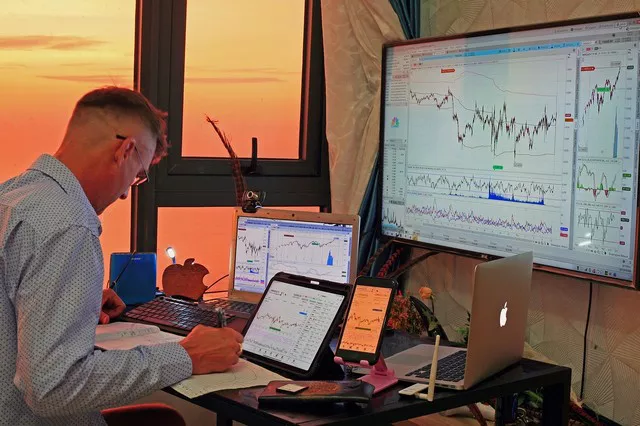Investing in the stock market offers various opportunities for traders and investors, and two popular derivative instruments are stock futures and options. While both are commonly used for speculation and risk management, there are significant differences between the two. In this article, we will explore the dissimilarities between stock futures and options, including their underlying mechanics, risk profiles, and potential uses.
What are Stock Futures?
Stock futures are financial contracts that obligate the buyer to purchase or the seller to sell a specific quantity of shares of a particular stock at a predetermined price on a future date. These contracts trade on organized exchanges, such as the Chicago Mercantile Exchange (CME), and have standardized specifications, including the contract size, expiration date, and tick size.
What are Stock Options?
Stock options, on the other hand, provide the buyer with the right, but not the obligation, to buy (call option) or sell (put option) a specified number of shares of a particular stock at a predetermined price (strike price) within a specific timeframe. Options are traded on options exchanges, such as the Chicago Board Options Exchange (CBOE), and also have standardized contract specifications.
Mechanics of Stock Futures
Stock futures are binding contracts that require both the buyer and the seller to fulfill their obligations. If an investor purchases a stock futures contract, they are obligated to buy the underlying shares at the agreed-upon price when the contract expires. Similarly, if someone sells a stock futures contract, they are obligated to sell the shares at the specified price upon contract expiration.
The price of stock futures is influenced by the current stock price, interest rates, dividends, and time to expiration. The value of a stock futures contract fluctuates throughout the trading day, reflecting changes in the underlying stock’s price. Profits or losses are realized when the contract is closed or settled at expiration.
Mechanics of Stock Options
Stock options provide the holder with the right to buy or sell shares at a predetermined price, but they are not obligated to do so. The buyer pays a premium to the seller for this right. The premium represents the cost of the option and is influenced by factors such as the stock price, strike price, time to expiration, implied volatility, and interest rates.
Call options give the buyer the right to purchase shares at the strike price, while put options grant the right to sell shares at the strike price. The buyer can choose to exercise the option if it is beneficial, but they are not obligated to do so. If the option is not exercised before its expiration, it becomes worthless, and the buyer loses the premium paid.
Risk Profiles of Stock Futures and Options
Stock futures and options have different risk profiles, which should be considered when deciding which instrument to use.
Stock Futures Risks:
- Unlimited Risk: Selling stock futures can result in unlimited losses if the price of the underlying stock moves against the position.
- Leverage: Stock futures provide leverage, allowing traders to control a large position with a relatively small amount of capital. While leverage amplifies potential gains, it also increases the potential for losses.
- Obligation to Fulfill Contract: Stock futures contracts have an obligation to buy or sell the underlying shares, which exposes traders to the risk of adverse market movements.
Stock Options Risks:
- Limited Risk: The risk for options buyers is limited to the premium paid. Even if the market moves unfavorably, the loss is limited to the initial investment.
- Time Decay: Options have an expiration date, and their value diminishes as time passes. This time decay, also known as theta, affects options’ prices and can erode their value if the underlying stock’s price doesn’t move as expected.
- Lack of Ownership: Buying options does not grant ownership of the underlying stock, limiting the benefits of dividends and voting rights.
Uses of Stock Futures and Options
Both stock futures and options serve various purposes in trading and investment strategies.
Stock Futures Uses:
- Speculation: Traders can use stock futures to speculate on the future direction of stock prices, either by going long (buying) or short (selling) the futures contracts.
- Hedging: Investors can use stock futures to hedge their existing stock positions. By taking an opposite position in futures, they can offset potential losses in the underlying stocks.
- Portfolio Management: Stock futures can be used to adjust portfolio exposure, manage risk, or gain exposure to a particular sector or market.
Stock Options Uses:
- Speculation: Options allow traders to speculate on the future price movements of stocks without directly owning them. They can benefit from leverage and the potential for significant returns.
- Income Generation: Traders can generate income by selling options contracts and collecting the premium. This strategy, known as writing options, can be profitable in stable or range-bound markets.
- Risk Management: Options provide a way to protect against adverse price movements in existing stock positions. By purchasing put options, investors can limit potential losses.
- Strategies: Options can be combined in various strategies, such as spreads and straddles, to take advantage of specific market conditions or volatility expectations.
Conclusion
Stock futures and options are derivative instruments used in trading and investment strategies. While both offer opportunities for speculation and risk management, they differ in their mechanics, risk profiles, and potential uses. Stock futures are binding contracts that require the buyer and seller to fulfill their obligations, while stock options provide the buyer with the right, but not the obligation, to buy or sell shares at a predetermined price. Understanding the differences between stock futures and options is essential for investors and traders looking to navigate the complexities of the stock market effectively.


